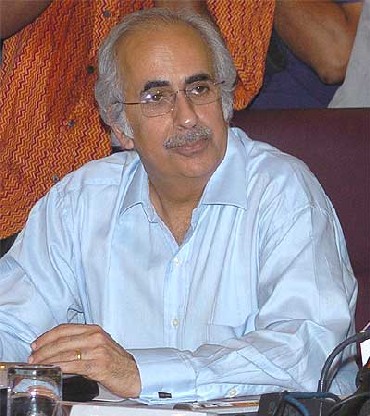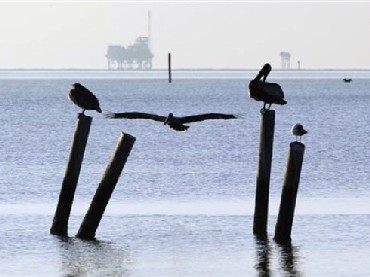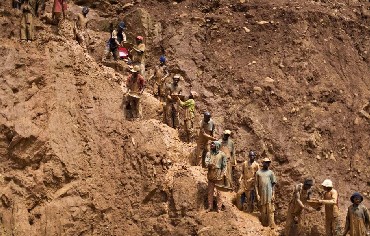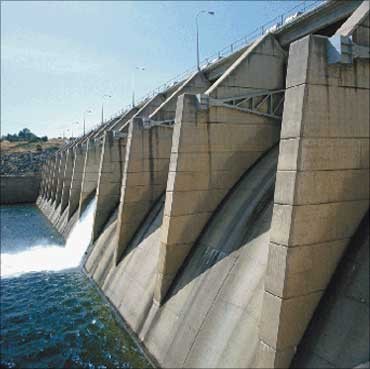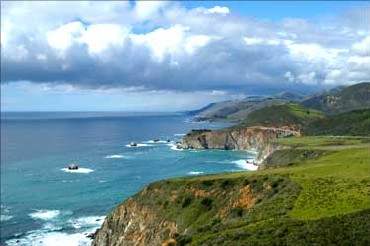 | « Back to article | Print this article |
How will Chawla panel save the nation's wealth?
It takes either a scam or a crisis, or both together, to get the government thinking seriously about governance frameworks and reforms. Shipping gold to the Bank of England in 1991 lead to the product-market liberalisation regime, popularly called "de-licensing".
The Harshad Mehta scam led to a shaking-up of work practices in stock exchanges and the empowerment of the Securities and Exchange Board of India (Sebi).
The Tata Motors-Singur land acquisition episode led to the hasty drafting of a new Land Acquisition Bill and the Resettlement and Rehabilitation Bill - both still pending before Parliament.
And the last six months have seen controversies around coal, gas-pricing, iron-ore, spectrum, forests and environment rock the system.
Click NEXT to read more...
How will Chawla panel save the nation's wealth?
So it is obviously time to fix the "natural resources" allocation and pricing system or create one, in case sceptics point out that there was never any system in the first place.
The first sign that shows a government is serious about an issue is when it appoints a high-powered committee to look into matters.
Yes, we now have a committee to look into the allocation and pricing of natural resources chaired by the recently-retired Finance Secretary Ashok Chawla.
The member-secretary of the committee is a serving IAS officer, Govind Mohan, who has moved on to this task from being joint secretary - infrastructure in the Department of Economic Affairs.
The Centre for Policy Research, a think-tank based in New Delhi, has also been brought on board for intellectual ballast.
Click NEXT to read more...
How will Chawla panel save the nation's wealth?
A Cabinet Secretariat order dated January 31, 2011 announced in unambiguous terms the rationale for setting up this committee: "With a view to enhance transparency, effectiveness and sustainability in utilisation of natural resources, consistent with the needs of the country to achieve accelerated economic development, it has been felt desirable to adopt an open, transparent and competitive mechanism for allocation, pricing and utilisation of the natural resources.
In pursuance of the above, the Group of Ministers (GoM) constituted to consider measures that could be taken by the government to tackle corruption, has in its meeting held on January 21, 2011, decided, inter-alia, to constitute a Committee to deliberate on the above issues". This GoM (no surprises here) is headed by Finance Minister Pranab Mukherjee.
The committee "naturally" has the secretaries of all natural resources ministries as its members.
These include Petroleum and Natural Gas, Environment and Forests, Coal, Telecommunication, Defense, Minerals, Water, Land Resources and Planning Commission.
Click NEXT to read more...
How will Chawla panel save the nation's wealth?
For completeness, it also has the Confederation of Indian Industry (CII) and the Federation of Indian Chambers of Commerce and Industry (Ficci). This committee has the onerous task of delivering on the terms of reference below:
# Enhance transparency, efficiency and sustainability in the allocation, pricing and utilisation of natural resources through open, transparent and competitive mechanisms.
# To identify major natural resources that are allotted/distributed by the government of India and the institutional framework for the utilisation of such resources.
# To examine the efficacy and suitability of the existing legal and regulatory framework, and rules and procedures in this regard.
# To suggest measures to optimise the benefits of such utilisation for all stakeholders, while ensuring sustainability of the resources.
# Effectiveness in allocation, pricing and utilisation of these resources.
# To suggest changes in legal, institutional and regulatory frameworks to implement the above recommendation.
# And any other issue(s) related to the above.
Click NEXT to read more...
How will Chawla panel save the nation's wealth?
Many quarters rightfully believe that the task before the committee could be extremely challenging for six reasons:
# It has been given only three months to complete the task.
# The canvas is very wide. It covers coal, minerals, petroleum, gas, forests, land, water and spectrum. All of these have substantively large sub-sectors, for example, gas has coal-bed methane, shale gas, shale oil and hydrates.
# The administrative jungle that it will have to navigate is mind-boggling and complex. Each area has layers of Acts, rules, regulations, policies, guidelines and change memoranda.
# Issues between the Centre and state are constitutionally sticky and difficult to resolve even in the best of times (river-water sharing, royalty on mineral extraction and goods and services tax).
# A mass of economic theory and debate can cloud practical thinking.
# Choices between competitive market structures and administered allocation and pricing at this developmental cycle of our economy could be intellectually demanding.
Click NEXT to read more...
How will Chawla panel save the nation's wealth?
Still, for carrying out its tasks the committee will have to draw upon a wealth of economic theory built around this area. It will have to grapple with "equity" versus "economic efficiency" choices.
It will have to look at promoting sustainable utilisation of natural resources like minerals and coal, among other resources.
The depletion of resources today will deprive future generations.
In Norway and Alaska, a Petroleum Fund has been created from the surplus wealth produced by the petroleum income for use by future generations.
Most importantly the committee will have to take a call on "growth" versus "sustainability" as the bulk of India's mineral wealth is under forest land.
It will have to decide the real opportunity cost of harnessing resources and to collect it from the user - the jargon here being "negative externalities".
Click NEXT to read more...
How will Chawla panel save the nation's wealth?
This principle is often used in the allocation and pricing of forest land, and displacements as a result of large hydro-electric projects.
It will have to take a call on "Predictability of Outcomes" to minimise uncertainty and transaction costs.
Auction-driven price discovery may not necessarily work where revenue share mechanisms, such as those used in allocation of oil and gas fields, may be considered more appropriate.
It will have to take a call on economic security issues facing the nation, as in high dependence on oil imports vis- -vis more intensive mining of resources like coal and shale gas.
The starting point for the exercise should surely be to build consensus on the objectives for each of the resources to be priced and allocated.
Click NEXT to read more...
How will Chawla panel save the nation's wealth?
Methods and processes for pricing and allocation should come later. The tail should not wag the dog.
Should the objective be revenue maximisation or penetration (the spectrum debate); should it be export maximisation or value-addition (iron-ore); should it be environment preservation (forests) or "growth" through rapid mineral extraction?
Such either-or choices will confront the committee at every twist and turn. Thus, it is best if the committee, at stage one, concentrates only on "objectives" for each sector; rather than rush in with pricing-and-allocation solutions that may not necessarily be reflective of national aspirations.
With due respect to Adam Smith, right now we Indians are quite perturbed about many visible and invisible hands surreptitiously dipping into the wealth of our nation.
The nation looks forward to Pranab babu and his GoM supported by Messrs Chawla and Mohan to lead us to salvation.
Hallelujiah.
The author is the Chairman of Feedback Ventures The views expressed are personal.

